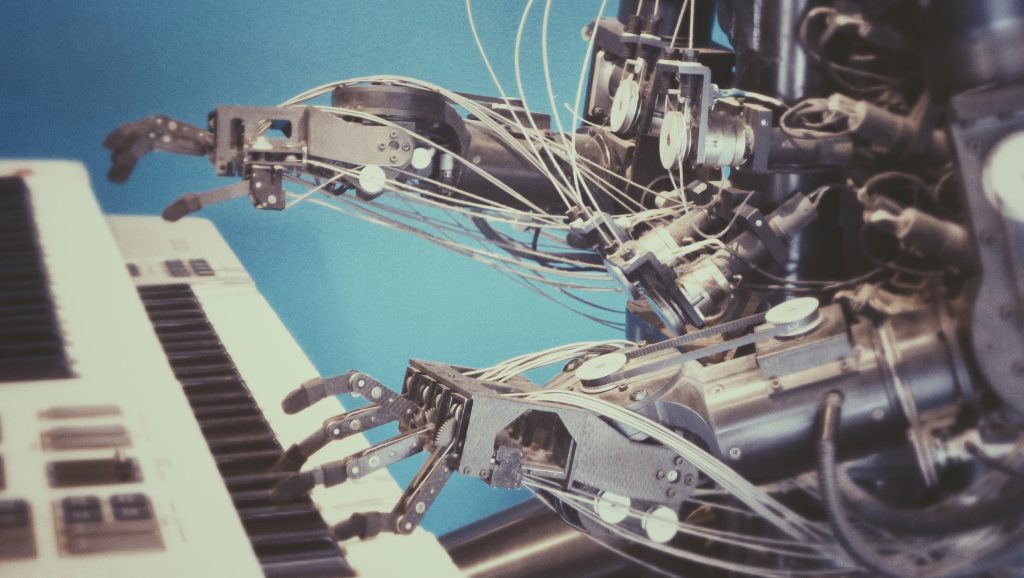AI- Biggest Disruption in the B2B SaaS World
What was until recently an emerging trend is now so extensively established that even thinking of working without it seems delusional.
The year 2018 was all about AI-driven applications and every SaaS company we know has either already started or working towards joining the AI bandwagon. It comes as no surprise that many analysts have predicted AI as the next big shift in the B2B SaaS market.
The year 2019 will see AI intertwined with everything possibly possible.

As AI becomes an integral part of the SaaS evolution let’s explore a few ways how SaaS companies can take advantage and brace themselves for the market disruption.
1. DIY making its way in the SaaS world
We are in an era of self-service. Customers before reaching out to support executives prefer phasing through self-service channels to find solutions and AI-driven tools come as a perfect fit.
AI-powered assistants converse proactively with customers assisting them to reach the right information from all the information flooding the internet. Wherever these assistants get stuck, they direct customers to their human counterparts. Also, they act as a bridge between the customer support executive and the customer. They provide the agent with the exact problem the customer is looking to solve making it a seamless switch.
Hola, I’m Bot 91
I’m sure it must’ve crossed your path!
2. SaaS companies need to constantly improve and nurture their customer relationships
The traditional SaaS model is based on rolling monthly subscriptions, and to keep clients returning month by month SaaS companies need to constantly work on their client relationships.
The manual labour involved in the building of the customer relationship is reduced by the involvement of AI and it further allows vendors of SaaS to interface with customers in a more meaningful way.
But there’s a catch to it…
One of the biggest hurdles to training a machine learning system is getting access to large enough datasets. But if you are a SaaS tool focused on solving one particular problem as we do, there’s good news for you.
Rather than being an all-in-one solution, companies focused on solving a particular problem do a better job of creating the right kind of data to train machine learning applications. Once companies have access to these huge datasets, they can start solving problems.
3. Richer conversations to keep customers engaged
Customers are increasingly leaning towards self-service but when interacting with humans they want a personalized experience.
It simply means that the customer service executives need to be well equipped on customer data and history and the context the customer is talking about at that moment. Here is where artificial intelligence comes to the forefront. AI tools can crunch customer data to gain insight into customer behaviour, predict trends and plan their service offerings accordingly.
Tying multiple silos together, AI can give SaaS companies a 360-degree view of the customer. Also, they can be with the customer all day, and across all channels of engagement doing what human executives can rarely do.
Well, our executives are exceptions; they’re superheroes, they do it all the time and you know it. A little boasting does no harm, does it?

4. Identify and analyze what customers are doing now and will do in the future
Machine learning empowers enterprises to identify and analyze customer needs with predictive analytics. It can easily be touted as the most vital of all artificial intelligence capabilities.
The combination of historical data with advanced analytics can help track and form patterns to identify what a consumer’s next step will likely be: open an SMS, buy a new product, or disengage from your brand.
This depth of data can help you better personalize your communications, segment your customer database, and further customize the user experience.
I’m sure you are already doing it with mCampaign!
5. Automation has cemented its place in the SaaS world
If you are a SaaS company decision-maker, you know it requires an immense amount of intel, effort and manpower to keep customers engaged, especially over time as their needs change.
AI allows companies to refine and automate many of the customer experience processes. That, in turn, enables seamless cross-section between convenience, problem-solving and human experience.
Just 2 years from now, 30% of all B2B companies globally will use AI to augment at least one of their primary sales processes.
AI may take on many avatars, but automation is already deep-rooted and is here to stay. Some tasks may get automated now while some might take years, but eventually, it will all happen in some way or another.
More focus on solving real enterprise problems
As AI adoption increases across industries, more specialized players will have access to more clients, and thus more data sets to hone their AI.
If the great minds of the SaaS world are to be trusted, it seems that the effect of AI evolution in software companies is well underway.
We at MSG91 are continuously and comfortably adapting it. What about you?
Views: 139
- ai
Copyright 2008-2026, Superheroes, Inc. | All rights reserved.